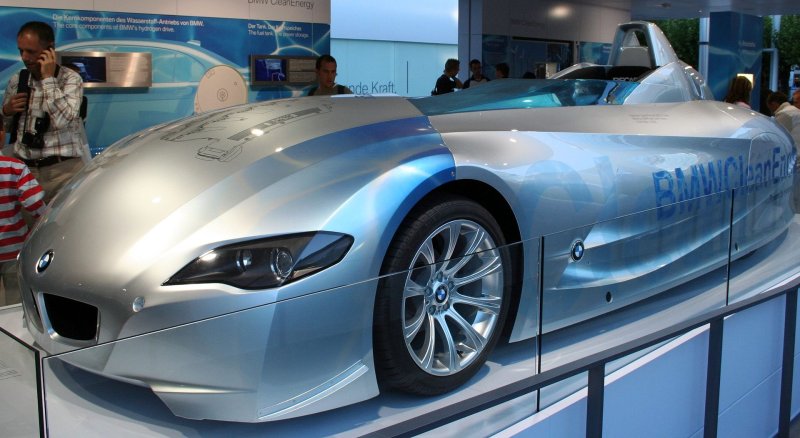One Quick Question: Are hydrogen-powered cars the next big leap forward in transportation?
Whether discussing a hydrogen combustion engine that uses hydrogen fuel instead of gasoline and produces no greenhouse gas exhaust, or a hydrogen fuel cell-powered system using hydrogen and with an exhaust made of water, hydrogen-powered vehicles have been researched for years, and that research is only accelerating with huge investments by the major auto corporations around the world. Western Today sat down with Engineering & Design's Eric Leonhardt for the next installment of One Quick Question to get his insight into what the future holds for using the universe's most plentiful element as the next source of transportation fuel.
WT: Eric, the automotive landscape has changed dramatically in the last decade with the arrival of, and growth, of electric vehicles as a much less polluting alternative to traditional gasoline-powered vehicles. Are hydrogen-powered cars the next wave?
Eric: "Billions of dollars have already been spent on fuel-cell research and development. At one point at a board meeting, Vancouver, B.C.'s own Ballard Power expressed interest in buying Ford Motor Company so they could have a captured vehicle manufacturing base.
Fuel cell performance has improved dramatically since the 10 kW "room sized" units of the early 1990's to the amazing, 75-100 kW rack-mounted units of today. These look more like stereo amplifiers then something that can power a car, bus, or vessel.
The challenge is that the infrastructure for electric vehicles is so far ahead of the hydrogen fueling infrastructure. Electric outlets are readily available. It's true that the energy infrastructure will need improvements. More charging stations will help urban dwellers who may not have access to a garage charger. Some states, like Texas, already have enough generating capacity to power all of its potential light-duty electric vehicles. More than 130,000 public electric charging stations exist.
Fuel-cell infrastructure, on the other hand, is at a much smaller scale.
California is far ahead in fuel-cell infrastructure with 58 hydrogen stations, up from 35 in 2018. The entire nation only had 39 stations in 2018. Fuel cells will need specialized fueling centers and will not be filled at homes. The reality right now is that electric-vehicle infrastructure has a dominant lead that will not be overtaken by hydrogen anytime soon, whether we are talking about hydrogen fuel cells or hydrogen combustion engines that burn hydrogen the way current engines burn gasoline."

